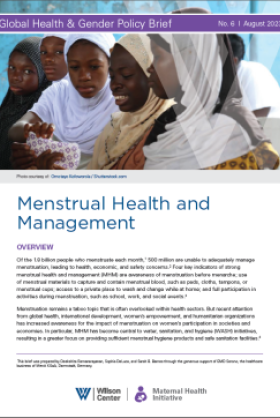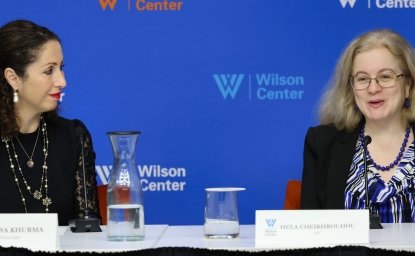Global Health & Gender Policy Brief: Menstrual Health and Management


Of the 1.8 billion people who menstruate each month, 500 million are unable to adequately manage menstruation, leading to health, economic, and safety concerns. Menstruation remains a taboo topic that is often overlooked within health sectors. But recent attention from global health, international development, women’s empowerment, and humanitarian organizations has increased awareness for the impact of menstruation on women’s participation in societies and economies.
Despite its potential widespread impact, existing policies that address MHM are limited at both the national and international levels. Thus, MHM must be prioritized in overall policy and practice, and in both peacetime and during humanitarian crises.
In a new policy brief, Menstrual Health and Management, the Wilson Center’s Maternal Health Initiative explores MHM in the context of human security, including economic, personal, and health security, as well as in humanitarian and fragile settings; examine current policies and initiatives to promote proper MHM; and offer recommendations to improve MHM globally.
Authors

Maternal Health Initiative
Housed within the Wilson Center's Environmental Change and Security Program, the Maternal Health Initiative (MHI) leads the Wilson Center’s work on maternal health, global health equity, and gender equality. Read more

Explore More
Browse Insights & Analysis
How Education Can Empower Young Women in MENA

Empowering the Changemakers of Today: Young Women



